A historic measure to protect national steel production. It was with this message that Marco Polo, president of the Instituto Aço Brasil (IABR), which represents Brazilian steel companies, analyzed the federal government’s decision to implement a quota for the import of steel products and surcharge the import surplus of this quota by 25%.
The decision was taken this Tuesday (23/04) by the executive committee of the Chamber of Foreign Commerce (Camex), a federal government collegiate body that brings together ten ministries, after national steel companies filed a request to increase the Import Tax rate on various products linked to steel to up to 25%. “It took nine months of negotiations to resolve this issue of predatory steel imports, which were harming the sector in Brazil. The government’s decision was historic. It has an important psychological effect on the sector and sends a message to the international market: Brazil can implement systematic measures against predatory imports (of steel)”, said Marco Polo in an exclusive interview with O Tempo.
According to him, the sector committed to resuming planned investments and maintaining jobs in steel mills, which were threatened by the increase in steel imports, mainly from China. Marco Polo said that the sector contributes, on average, R$12 billion per year to Brazil. Average values for maintenance of manufacturing units, but which may increase according to new steel mill projects. Large companies such as Usiminas, Gerdau, Arcelor and Aperam have billion-dollar investment plans underway, most of them in Minas Gerais. During the nine months of negotiations between the sector and the federal government to impose this surcharge on imported products, these investments were put at risk if protective measures for the domestic market were not implemented. When contacted by the report, the companies said that they would not yet comment on the matter, delegating all analyzes and repercussions on the topic to the Instituto Aço Brasil.
Marco Polo said that it is not yet possible to measure what benefits the measure will bring from now on, but he said that it greatly alleviates the negative predictions that the IABR had for the sector in 2024 if imported steel continued “invading the Brazilian market”. In a report released in November last year, the IABR predicted a 3% drop in steel production for 2024, to 30.4 million tons, and a 6% drop in domestic sales, to 18 million tons. Imports were expected to soar 20%, above the increase that occurred in 2023, to 6 million tons, or 79% above what was achieved just two years earlier, in 2022. This volume of foreign steel would represent, according to calculations made at the time by the institute , a loss of revenue of R$3.4 billion and thousands of jobs. The sector’s potential loss of revenue could reach R$36.7 billion if protective measures for the national market were not taken.
Still according to Marco Polo, China sold a ton US$50 to US$56 below the production value. The Asian country’s government subsidizes the country’s steel to gain market share. “Unfair competition and predatory imports,” he said. The United States, Europe, Mexico and Chile (which also announced its protection measure on Tuesday) have already surcharged Chinese steel by 25%, a rate that Brazil is now applying for the surplus of imported steel above the quota that the government established with companies. The products that were targeted by the measure currently have tariffs ranging from 9% to 12.6%. In 2023, imports took up 26% of the national market. The volume purchased from other countries, especially China, which is responsible for 83% of imports, represented 16% of national production of steel products last year.
The president of IABR said that the sector will now have more peace of mind. He also said that the stoppages in production lines in Brazil, which occurred last year to level production with demand, may no longer occur. He made a point of praising the performance of the vice-president and minister of Development, Industry, Commerce (MDIC), Geraldo Alckmin, and the executive secretary of the MDIC, Márcio Elias, in leading the resolution of the problem that was plaguing the Brazilian steel sector.
In an interview with the press on Tuesday, Alckmin stated that the measure was taken after a careful analysis by the government and the verification of a growth of more than 1000% in imports in some cases. “It is an important industry, a basic industry necessary for the country,” stated the vice president.
According to the government, technical studies showed that the measure will not have an impact on consumer prices or derivative products in the production chain. During the 12 months, market behavior will be monitored and the official expectation is that the decision will contribute to reducing idle capacity in the national steel industry.
The 11 steel products that will have import quotas are the following:
- Flat rolled products, of iron or non-alloy steel, with a width equal to or greater than 600 millimeters (mm), coated with aluminum-zinc alloys;
- Flat rolled products, of iron or non-alloy steel, with a width equal to or greater than 600 mm, clad or plated, or coated, galvanized by another process, with a thickness of less than 4.75 mm;
- Flat-rolled products, of iron or non-alloy steel, of a width of 600 mm or more, not plated or coated, in rolls simply cold-rolled, of a thickness exceeding 1 mm but less than 3 mm;
- Flat-rolled products of iron or non-alloy steel, of a width of 600 mm or more, not plated or coated, in rolls simply cold-rolled, of a thickness of 0.5 mm or more, but not more than 1mm;
- Flat-rolled products of iron or non-alloy steel, of a width of 600 mm or more, hot-rolled, not clad or coated, in rolls, simply hot-rolled, of a thickness of more than 4.75 mm , but not more than 10 mm;
- Other flat-rolled products of iron or non-alloy steel, of a width of 600 mm or more, not clad or coated, in rolls, simply hot-rolled, of a thickness of 3 mm or more but less than 4 .75mm;
- Flat-rolled products of iron or non-alloy steel, of a width of 600 mm or more, not plated or coated, in rolls, simply hot-rolled, of a thickness of less than 3 mm, with a minimum elastic limit of 275 Mpa;
- Other flat-rolled products, of iron or non-alloy steel, of a width of 600 mm or more, not clad or coated, in rolls, simply hot-rolled, of a thickness of less than 3 mm;
- Other wire rods of iron or non-alloy steel, circular in section, with a diameter of less than 14 mm
- Pipes of the type used in oil or gas pipelines, welded longitudinally by immersed arc, of circular section, with an outer diameter greater than 406.4 mm, of iron or steel;
- Other pipes of the type used in oil or gas pipelines, longitudinally welded, circular in section, with an outer diameter exceeding 406.4 mm, of iron or steel.
List of four products that may have quotas:
- Other uncoated, seamless steel alloy tubes for well casing;
- Other pipes of the type used in oil or gas pipelines;
- Other pipes for casing wells, production or supply, of the type used in the extraction of oil or gas, of iron or steel;
- Other pipes welded from other sections.
—
THE TIME reinforces the commitment to quality, professional and Minas Gerais journalism. Our newsroom produces responsible information every day that you can trust.
Follow THE TIME on Facebook, on Twitter and on Instagram. Help grow our community.
Tags: Historic protective measure steel guarantee jobs investments sector
--





